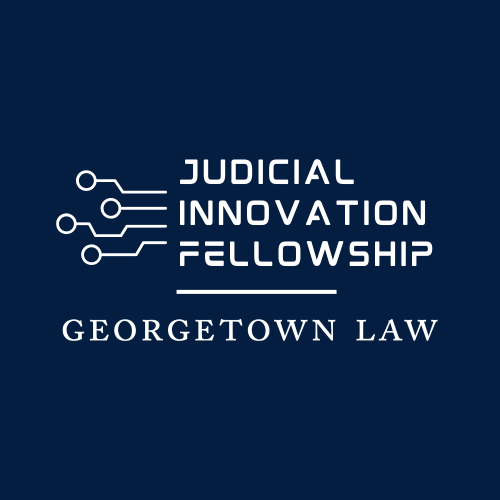Georgetown Law launches fellowship program to improve public access to courts through technology

The Georgetown University Law Center plans to embed technology experts in state, local and tribal courts in September 2023 through a fellowship program intended to help improve court processes and public access to justice.
The Judicial Innovation Fellowship program has two goals: to create replicable software and to “seed culture change” within judiciaries, so that they will become more responsive to needs of court patrons, according to a Georgetown Law press release and backgrounder.
Embedded fellows will first gather information on problems that could be addressed by technology and then will work on the solutions.
Those solutions might include improving public interactions through online filing; streamlining processes, such as changing a court date; and improving how courts collect and use data.
Leading the program are Jason Tashea, a Schmidt Innovation fellow and a former legal affairs writer for the ABA Journal; and Tanina Rostain, a Georgetown Law professor who is also the program’s principal investigator.
Before the launch of the program, Tashea interviewed 110 people, including judges, court officials, access-to-justice advocates and people who have run similar fellowships in other branches of government. He learned of “common headaches” experienced by courts that could be addressed with solutions that could be applied across jurisdictions. That helps avoid a fellow designing “bespoke solutions for one judge and one judicial district,” he told the ABA Journal.
He identified these three common headaches:
• A need to improve how court data is collected, shared and used. The problem, Tashea says, is that a lot of technology projects—such as those involving case management, calendaring, virtual hearings, online dispute resolution and self-help portals—operate independently in their own “silos,” he says.
• Electronic filing systems that are not easy to use. Self-represented litigants are allowed to use electronic filing systems in 42 states, but usability is low because the systems were built for attorneys.
• A lack of resources for beta testing new technology systems with actual users. Many court technology projects are handled by court staff members and an outside vendor, without processes to gather feedback. It would be helpful to have a “playbook” to gather feedback that could be used for new technology projects.
The initial Judicial Innovation Fellowship program fellows will be paid a competitive salary with benefits, and their fellowships will last a year. The fellows will also have a budget to support projects that they are working on.
Tashea envisions that the fellows will be technology experts and designers with midcareer experience. Designers could be a front-end web designer or a user designer who makes sure that users can navigate new technology as intended.
Besides technology expertise, fellows should have interest in public service, humility and the ability to build bridges with colleagues, Tashea says.
Tashea credits team member Jameson Dempsey for coming up with the idea for the Judicial Innovation Fellowship program after noting similar fellowship programs in the executive and legislative branches. Funds for the program are being provided by the New Venture Fund and the Pew Charitable Trusts.
Georgetown Law is offering webinars for courts and potential fellows interested in participating. The program will be housed within the Justice Lab at the Institute for Technology Law & Policy at Georgetown Law.



